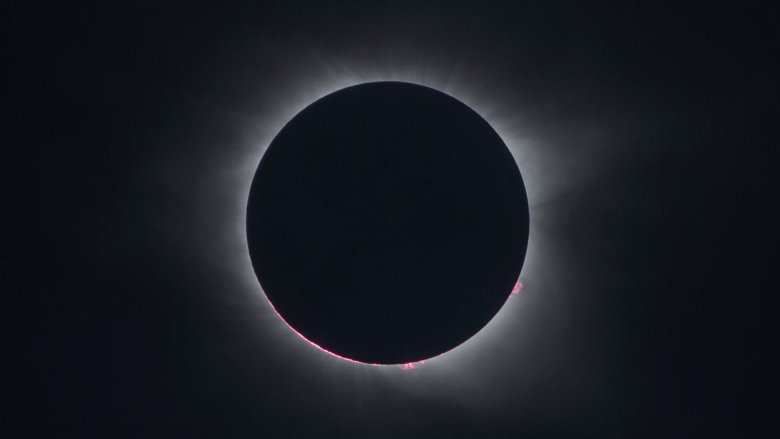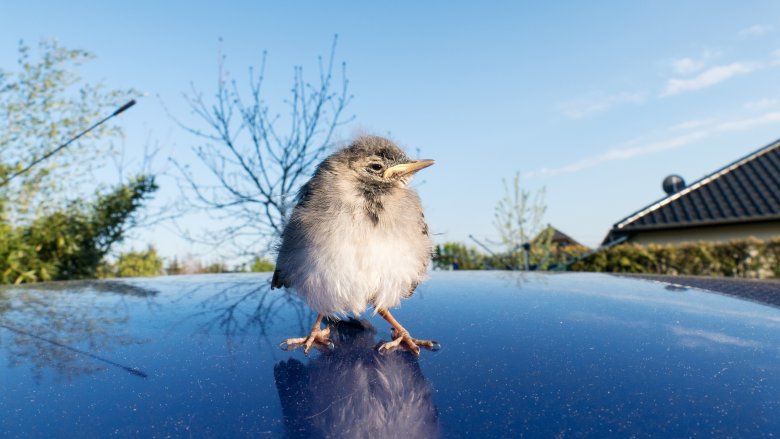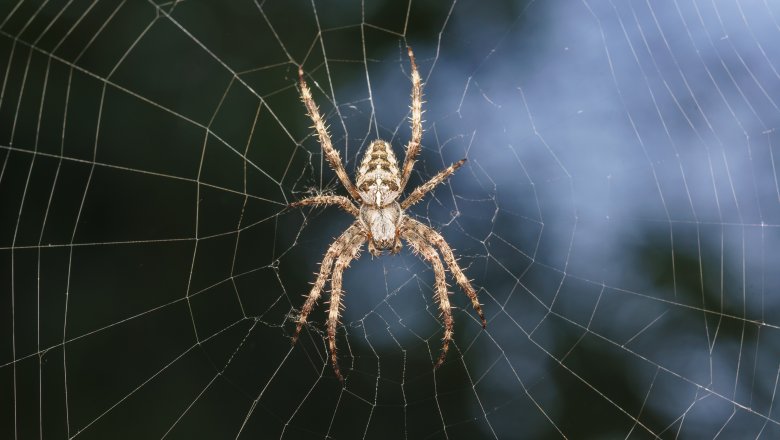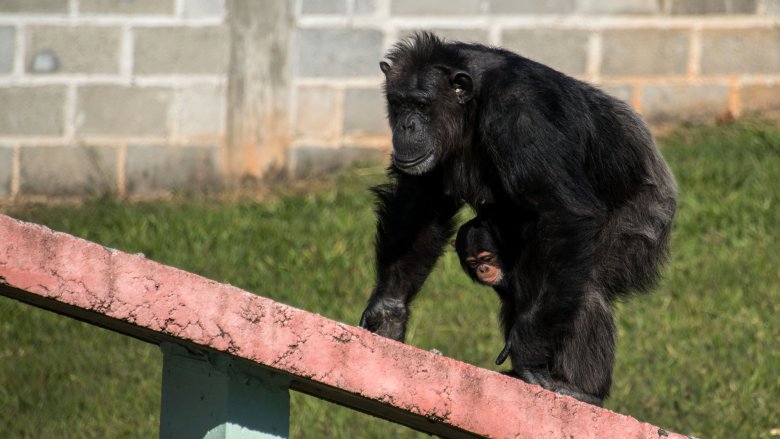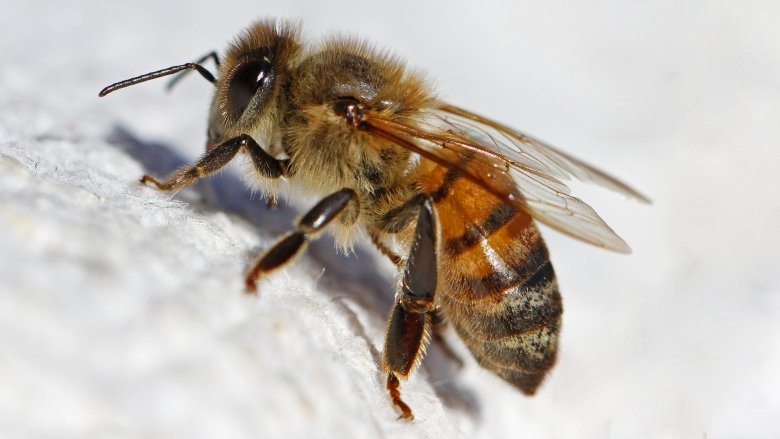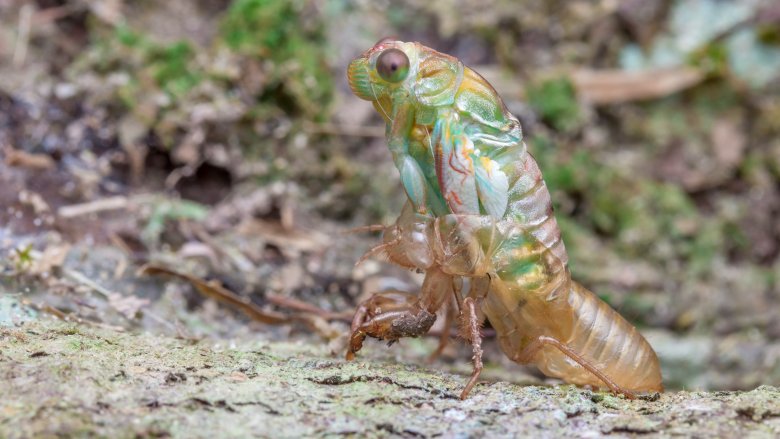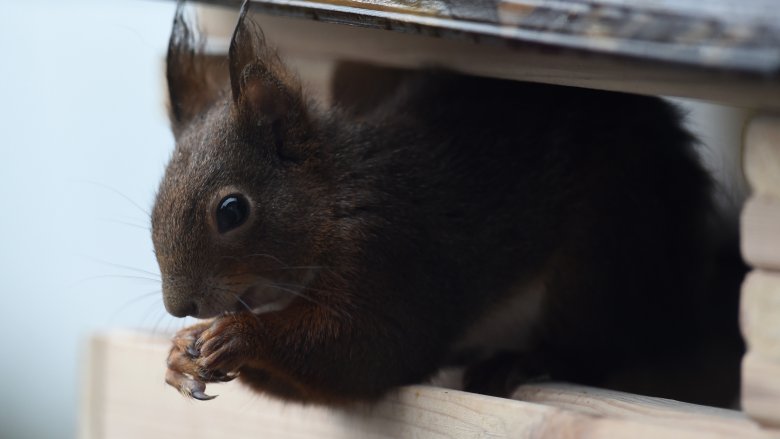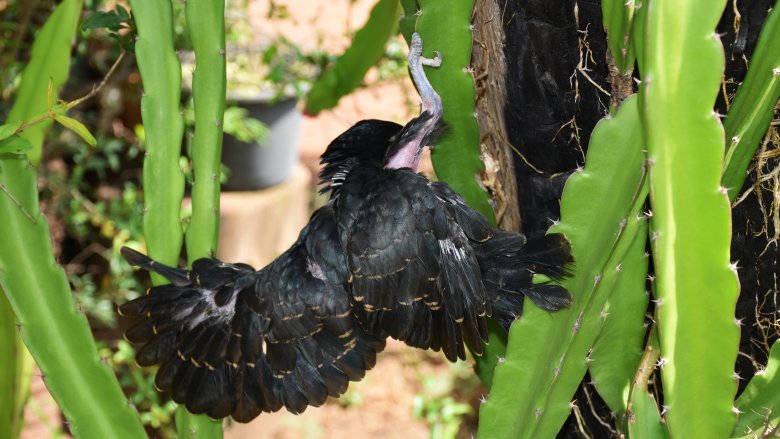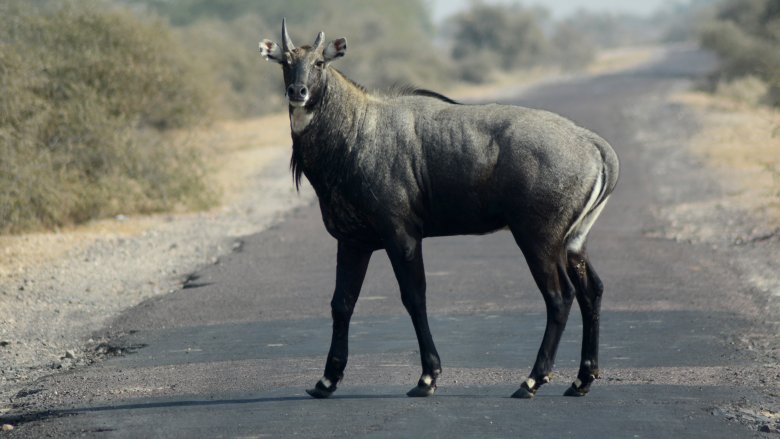Strange Ways Animals Have Reacted To Solar Eclipses
By now, we know how humans react to solar eclipses: we stop working, wear funny glasses, and stare at the moon-sun like it might shower us with gifts. But what about all the other animals? How do they handle the Great Life Giver that is the Sun abandoning them for a few minutes? Hard to say. Most observations thus far have been anecdotal, based on a small group of animals (or perhaps even one animal). They're also skewed because the animals are in captivity, and thus already act differently than they might in the wild. This isn't hard science, but here are some of the best eclipse reactions we've observed from Nature's creations.
Birds will either sing more or shut up completely
Birdsong depends on the time of day. Some birds will sing with the Sun, others prefer to squawk during the night show. They obviously can't tell time — they sing based on how much or how little light they see. So when the Sun becomes the Moon during a solar eclipse, it's understandable these cute little modern dinosaurs have no idea when to actually sing.
According to Audubon, different birds will sing at irregular times during an eclipse. California Academy of Sciences supervisor Elise Ricards observed while in Australia during the 2012 eclipse, "I distinctly remember the noisy birds in the jungle behind me going silent as totality hit the beach." To them, it was suddenly night time: better turn down the volume. University of Rhode Island wildlife ecology professor Scott McWilliams concurred, explaining that diurnal songbirds (daytime singers) will zip it because they think it's night, while nocturnal songbirds will see their cue and start warbling, early as it may be. Their inner clock may disagree, but the lack of light apparently overrides that.
Still, as Eclipse Soundscapes public relations coordinator Kelsey Perrett put it, "We can't base science on the actions of a few individual birds in an isolated location." So keep watching those birds. Maybe by the 2024 eclipse we'll have their singsongy behavior down pat.
Some spiders will take down their webs
A spider's web isn't just a home — it's an artistic statement, a masterpiece. And yet, certain spiders will destroy their masterpiece the second something like an eclipse happens, for no apparent reason except they're dreadfully confused.
According to a study from the University of Cincinnati, colonial orb-weaving spiders were observed, during the solar eclipse of July 11, 1991, dismantling their webs once the eclipse reached totality. Once the Sun re-emerged, most of the spiders rebuilt their webs. This is curious behavior, as spiders don't destroy their webs every night — talk about counter-productive. Even more curious, the spiders that had artificial light shone on them didn't take down their webs. Whether it's a species-specific thing or whether the sudden darkness confused them enough to make them accidental demolition experts isn't clear. The spiders aren't talking, probably because they're mad we keep shining fake lights on them and confusing them even more.
Chimpanzees will straight-up stare at it
As most of us know, you aren't supposed to stare at the eclipse (or the Sun, period) without protective eyewear. That hasn't stopped our closest relatives, chimpanzees, from doing just that because they don't need vision to beat you senseless if you get too close.
According to a study at the Yerkes Regional Primate Research Center in Georgia during the eclipse of May 30, 1984, a group of chimps was observed taking in the eclipse almost as humans would. As the sky darkened and the temperature decreased, all the single ladies (and also the ones with kids) ascended a structure to see what was going on. As the eclipse intensified, males joined the viewing party, with many "turning their faces upward" to see the blotted-out Sun. Only once the eclipse started to fade and the Sun began to re-emerge did it become too bright for the chimps, and they descended back down to the ground.
There were no reports of chimp blindness, so either their eyes are better suited for sungazing or that entire tribe got really, really lucky.
Bees either get lazy or super active (depending on the species)
It's hard to figure out what bees think of solar eclipses because, depending on what species you observe, they're probably all going to react differently.
In a 1956 study in India, rock bees were observed going absolutely bananas during that year's eclipse. Before the eclipse, roughly 20 bees would leave the hive and come back per minute — during the height of the eclipse, that number exploded to 172. It halved almost as soon as the eclipse ended, and 30 minutes after the peak, the traveling-bee number was back down to 28, then 24. Basically, the bees were suddenly entrenched in darkness they hadn't expected, they panicked, and once the light came back, they resumed business as usual.
Honeybees, meanwhile, take the time to sleep in. In a German study, a colony of bees took in the eclipse of March 20, 2015. During the eclipse's peak, the bees were observed using much less energy and flying around far less than before. Once the Sun came back, so did their motivation to move. So if supplies of Honey Nut Cheerios are down during the 2024 eclipse, you'll know why.
Desert cicadas get quiet
If you've heard one cicada, you've probably heard them all (at the same time). Nature's vuvuzela makes for some of the loudest, most ear-splitting noises you can imagine. But, as it turns out, all you need to shut them up is take away their Sun.
In a study from the Florida Entomological Society, a summer eclipse in 1991 allowed scientists to watch cicada reactions. Pre-eclipse, they were calling normally, but once the Moon took over, the calling ceased. For roughly 40 minutes, the cicadas had nothing to say, only resuming their yakking once the Sun returned. Cicada facial expressions are hard to read, so we don't know how they were feeling.
Researchers believed the decline in solar radiation — not the change in temperature, which was a mere 1-degree Celsius drop — caused the silence. This appears to be the catalyst in cicada activity, so take that away and suddenly everybody's eardrums are spared. When the next brood shows up to swarm hither and thither, we'll know what to do: blot out the Sun and keep them quiet.
Squirrels become running machines
Even at their laziest, squirrels are pretty active and fast. But based on one study, a solar eclipse will somehow make them run even more.
A study published in the animal behavior journal Ethology Ecology & Evolution observed a captive antelope ground squirrel's antics during the solar eclipse of September 11, 1969. During the eclipse, the squirrel was seen running much more and engaging in far more activities than on a normal day. What's more, it was acting this way for two hours after the eclipse ended. The study concludes that, for a squirrel anyway, behavior "induced by an eclipse can be more complex than mere retiring and emerging responses." Of course, it's just one squirrel, and it may have been a particularly nervous one for all we know. Maybe it was just having a bad day. Luckily, squirrels are literally everywhere, so if you don't want to watch the next eclipse, maybe take some time to study squirrels and see how zany they get once the Sun gets photobombed.
The animals at the Memphis Zoo all got silly
It's hard to capture animals being weird during eclipses. Probably the best way to do so is hit the zoo during one, since their entire gimmick is "lots of animals."
During the historic August 2017 solar eclipse, the Memphis Zoo held a solar eclipse watch party. Patrons donned funny glasses, watched the eclipse, and observed how the animals reacted. Good, clean fun. The results were great. One elephant, named Asali, apparently got hyper-alert when she was alone during the eclipse. After a few seconds, she found her herd and calmed down. This was different behavior, according to the zoo, than how the elephants reacted to the last eclipse, when a bunch started trumpeting, perhaps thinking it was their cue to play the Seven Trumpets of the apocalypse.
Hippos were seen acting like it was bedtime. They'd leave the water, start playing in the sand, and likely would've drifted off to the Land of Nod had the Sun not returned. Once it did, they went back to their normal hippo routine. Bears and crocodiles, on the other hand, started running around all confused, since their internal clocks were pretty sure it wasn't bedtime yet. They, too, calmed down once the eclipse ended. The humans observing them, on the other hand, probably went into a crowded migration pattern known as a traffic jam, which is usually the exact opposite of calming.
Birds fall from the sky
These animal-reaction stories are more anecdotal than scientific, but here's one that's the very definition of "anecdote." It took place in 1560, long before even your great-grandparents were born. According to the book Historical Eclipses and and Earth's Rotation, by F. Richard Stephenson, a Portuguese guy named Clavius wrote of his observations during the eclipse of August 21, 1560 (which he misremembered as 1559). It was dramatic, to say the least:
"There was darkness in some manner greater than night; neither could one see clearly where one stepped. Stars appeared in the sky and (marvellous to behold) the birds fell down from the sky to the ground in terror of such horrid darkness."
If you've seen birds in your lifetime, you've probably noticed they don't typically fall from the sky. Even during an eclipse, they might decide not to fly in the dark and land gently, but they don't crash. They're not solar-powered. So it's possible Clavius got his facts wrong (he wrote about it in 1593, decades after the event) or was just a big, dramatic fibber. Either way, it's a fun story. Also, "Terror of Horrid Darkness" would be an amazing heavy metal album title.
Chickens roost early
Many animals take a solar eclipse to mean "early bedtime." Here's video proof of that (accompanied by the most jaunty, "sung by chickens" ditty imaginable).
During the March 2015 eclipse, a farmer in the Faroe Islands filmed his chickens' reactions. They had just gotten up, and were having their breakfast, when around 8:30 a.m., the Moon took over. Come totality, it was basically nighttime again. The birdbrains apparently forgot they'd only been up for a couple hours at most and went to roost anyway. It was a simple conclusion for a simple animal: dark equals sleepytime.
Then, once the eclipse went away, the rooster reacted as if he hadn't just seen the Sun a couple hours ago. Crowing away like he does anytime he sees the Sun come out, he called for the chickens to wake up and start their day. Again. Though to them, it was probably as if that pre-eclipse mini-day never happened. They did probably wonder what happened to their breakfast, though.
Blue bulls' schedules get all jostled up
Yes, blue bulls are real, though sadly they're not as blue as you might hope. They probably feel blue during an eclipse though, because apparently they just have no clue what to do with themselves.
On July 22, 2009, a solar eclipse hit. Blue bulls housed at the Zoological Garden in Kolkata, India, were observed that day. The results were, in a nutshell, all over the place. On the day of the eclipse, males lay down and looked around longer, while females spent more time standing, looking around, and walking, but less time lying down. In addition, males ate, lay down, and socialized more often during the eclipse, while females ate less often and looked around more. Livin' the life!
